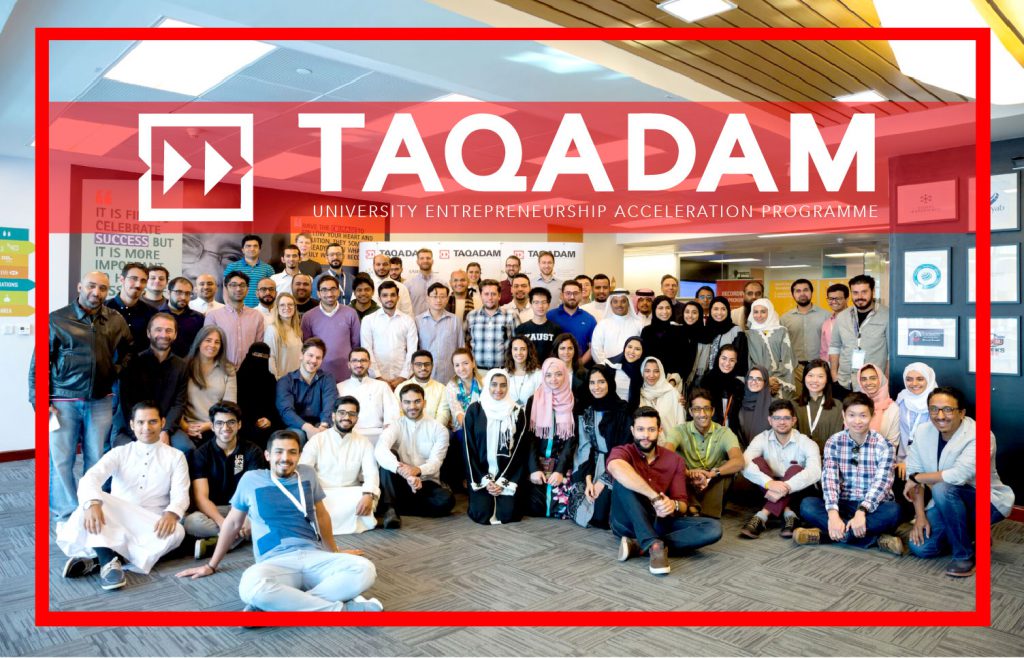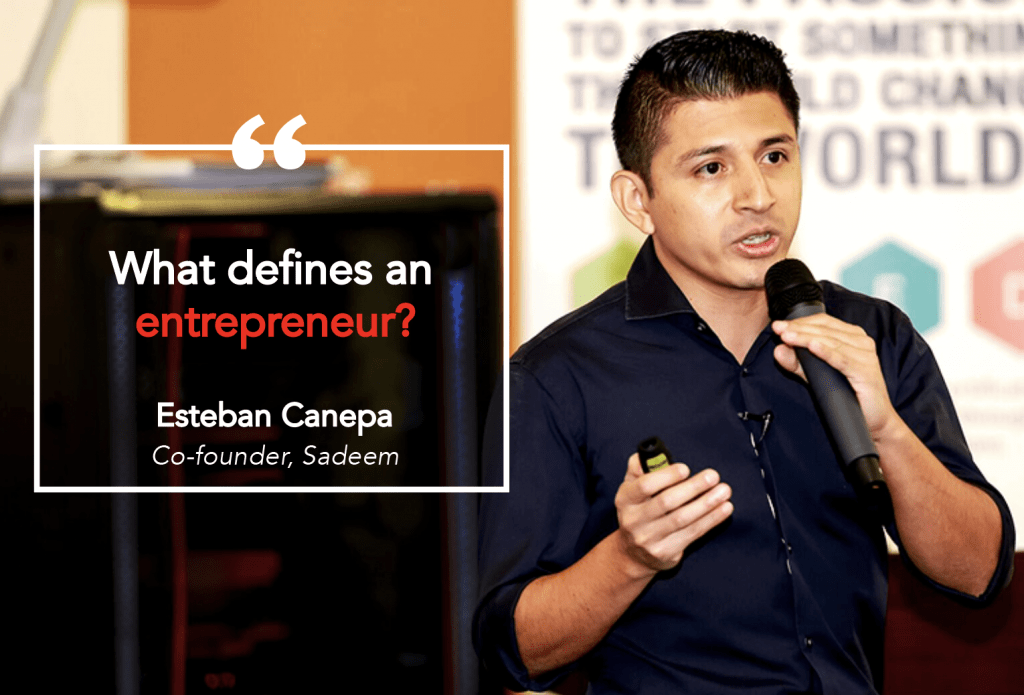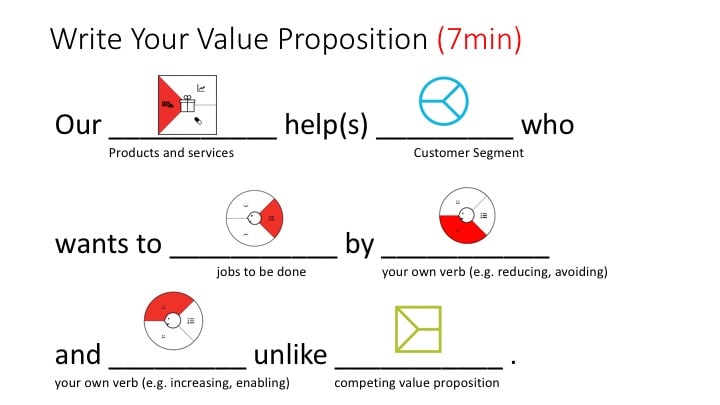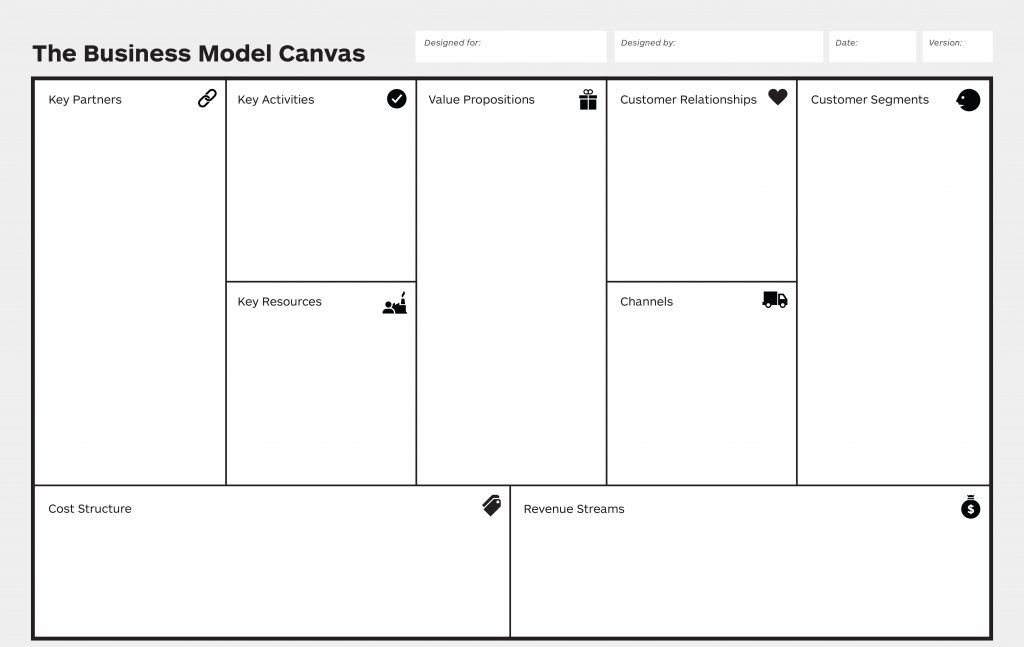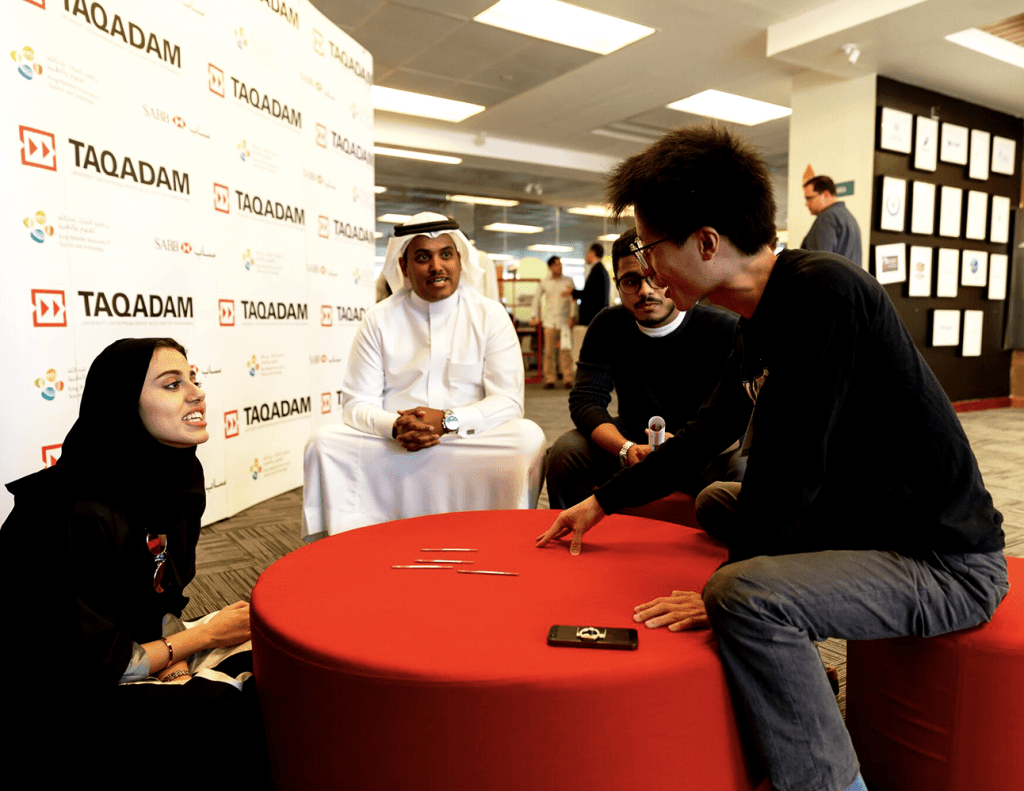What defines an entrepreneur? Esteban Canepa, co-founder of Sadeem, asked an audience of startup hopefuls at the TAQADAM bootcamp. They are innovators from 18 universities across Saudi Arabia, a mix of STEAM startups working in fintech, education, AI, e-commerce, renewable energy, and agriculture. For many, this is their first brush with entrepreneurship. They answered Canepa’s question with talk of “dreams,” “hard work,” and needing a little bit of “crazy.” And they aren’t far off. Canepa chose to quote Reid Hoffman, the founder of LinkedIn, to define an entrepreneur as, “someone who jumps off a cliff and builds a plane on the way down.”
The second TAQADAM cohort kicked off in January 2018 with 82 entrepreneurs from 37 teams across 18 Saudi Arabian universities. The program is the only multi-university startup accelerator in the Middle East. Over 6-months, a team of KAUST mentors equip entrepreneurs to successfully launch a technology-based company with milestone sessions on ideation, product design, marketing, and fundraising. Accepted startups receive up to $20,000 in pre-seed funding – provided through the program’s partnership with SABB – and access to the KAUST co-working spaces.
Currently in its second cohort, TAQADAM has received over 945 applications in total and successfully graduated 25 startups. It has awarded $1.2 million in pre-seed funding with partner SABB. As explained by Omar Batayyah, Head of Marketing at SABB, “The whole idea is to support the youth of Saudi Arabia. We believe in young people and the power they have to create change.” Addressing the second cohort, he added, “Every single one of you is a dreamer and we are here today to help you execute your ideas.”
What happens at a TAQADAM startup accelerator bootcamp?
The bootcamp is the first milestone of the TAQADAM accelerator program. In these first 2-days, startup founders work through the ideation of their business and attend sessions designed to get them thinking like an entrepreneur and begin outlining their business plan.
The Elevator Pitch
One of the first exercises at the bootcamp is an icebreaker elevator pitch. In front of a room of 100 people, selected founders stand up and pitch their companies. They’re nervous, but practiced. Then comes the difficult part, KAUST mentor Abdulrahman Jiffry randomly chooses an audience member to re-pitch their company to the same crowd.
There is a point to Jiffry’s making the audience squirm in their seats: the elevator pitch should be simple enough that someone else can pitch it. It is a short and clear message about what the company does and why it matters. The why it matters part is important – this is the value proposition of the company.
Jiffry presented a Mad lib designed to help the entrepreneurs figure out their value proposition in 7 minutes.
The Business Model Canvas
KAUST mentor, Arwa Shafi, presented the Business Model Canvas (BMC), a tool developed by Strategyzer to help entrepreneurs describe, create and assess their business ideas. There are nine sections in the canvas that focus on the desirability, feasibility, and viability of the business idea.
- Desirability: Customer segments, Value proposition, Customer relationships, Channels
- Feasibility: Key resources, Key activities, Key Partners
- Viability: Cost structure, Revenue streams
A large part of day one at the bootcamp is spent on the BMC. It’s not easy; there are a lot of blank looks, frustrated conversations – and pivots. Sometimes a startup enters the program and then realizes that their idea isn’t viable, so they pivot to a new one. O’asis, a solar energy startup in the current cohort, began with a model to create a full hydroponic greenhouse system. Since starting the program, they are now focusing only on the creation of a new-to-market, proprietary solar panel.
What happens next?
TAQADAM is competitive and not all of the startups that begin the accelerator will finish the program. Adulrahman Jiffry expects that of the 37 at the bootcamp, only 25 will make it through the program and only 12 will pitch at the showcase. According to Jiffry, “The first thing we look for is urgency. We are looking for people who have already taken action before coming to the program.” This pressure is essential, because at the end of the program founders are expected to be ready to go to market.
And there is no doubt that this sense of urgency contributes to the buzzing excitement over the 2-days of the bootcamp. “This cohort has been amazing,” said Jiffry. “This has been the batch where we’ve had the most people walk into an interview holding a physical prototype. It seems like the spirit of entrepreneurship in KAUST has risen to a new level.”
_______________________________________
Recent articles about TAQADAM Startup Accelerator
Check out the finalists from Cohort 1 in 2017
Saudi University Startups Pitch at TAQADAM Showcase in KAUST
TAQADAM University Accelerator Energizes Saudi University Startups

